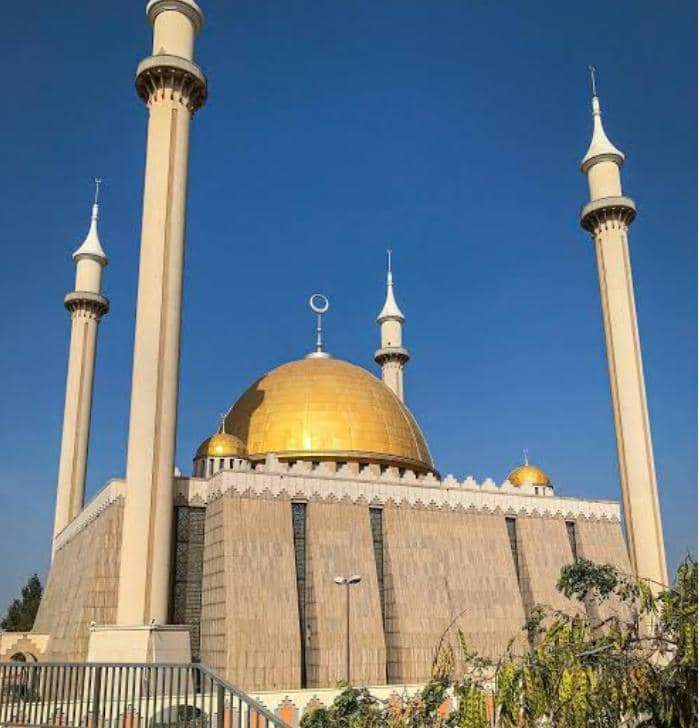5 new Imams appointed for National Mosque
The Nigerian Supreme Council for Islamic Affairs (NSCIA) has appointed five new Imams to the Abuja National Mosque, an important move aimed at promoting inclusivity and regional diversity within the Muslim community. Among the new appointees, two are from the Southeast, showcasing the Council’s commitment to unity across Nigeria’s various ethnic and regional groups.
The announcement took place during a press conference on Tuesday at the NSCIA Boardroom in the National Mosque Complex, Abuja. Prof. Is-haq Oloyede, the NSCIA Secretary-General, addressed the audience, underscoring the significance of the appointments and the process that led to them.
The Sultan of Sokoto, His Eminence Alhaji Muhammad Sa’ad Abubakar, who serves as the President-General of the NSCIA, was also recognized for his leadership and dedication to fair representation within the mosque’s administration.
REAF ALSO: Reps open to dialogue on Tax reform bill _ Southern caucus
The newly appointed Imams are Prof. Ilyasu Usman (visiting), Prof. Luqman Zakariyah (resident), Sheikh Abdulkadir Salman, PhD (visiting), Barr. Haroun Muhammad Eze (resident), and Prof. Khalid Aliyu Abubakar (visiting). Their appointments were approved by the General Purpose Committee (GPC) and the Expanded General Purpose Committee (EGPC), following clearance by the National Fatwa Committee.
Oloyede explained that these appointments are part of efforts to strengthen the Abuja National Mosque as a center for worship, education, and Islamic scholarship. He stressed that including Imams from diverse regions, such as the Southeast, represents a merit-based process and aims to unify the Muslim community, ensuring all parts of Nigeria are represented.
He said, “The appointment of these five individuals was made after thorough consideration by the GPC and endorsement by the EGPC, which was subsequently approved by the National Fatwa Committee.”
He highlighted the changes that have occurred since the appointment of Sultan Sa’ad Abubakar III, noting the unifying impact of his leadership. Oloyede said that the Sultan’s inclusive approach was evident, with examples such as his attendance at Ansar-u-deen for prayers, which was initially met with misunderstanding but eventually demonstrated his commitment to inclusivity.
Oloyede also addressed the alignment of culture with Islamic teachings, stating that while cultural identity remains important, it should not overshadow Islamic principles. He explained, “Islam prioritizes faith above all. My Yoruba identity aligns with my practice of Islam, and any cultural practice that contradicts Islamic teachings should be rejected. For instance, while Yoruba culture may permit polygamy up to five wives, Islam restricts this to four.”
Imam Prof. Ilyasu Usman, one of the new appointees, reinforced this message, highlighting the need for Muslims to adopt positive aspects of their culture while discarding practices that go against Islam. He pointed out that traditions such as idol worship or consuming alcohol conflict with Islamic teachings, whereas values like community support are positive and should be embraced.
Usman stated, “Every culture has its positives and negatives. For example, while my culture may have traditional alcohol consumption during festivals, this goes against my Islamic beliefs. However, good values like helping a brother in need are in line with Islam.”
The new appointments are part of the NSCIA’s strategy to evolve the leadership of the Abuja National Mosque, which it has overseen since its establishment in 1984. This initiative continues reforms made in previous years, such as the appointment of Prof. Shehu Ahmad Sa’id Galadanci as Murshid in 2017.
The NSCIA’s leadership emphasized the importance of unity through Islam, transcending ethnic, regional, and cultural divides, and stressed prioritizing Islamic values over divisive identities.


[…] READ ALSO: 5 new Imams appointed for National Mosque […]